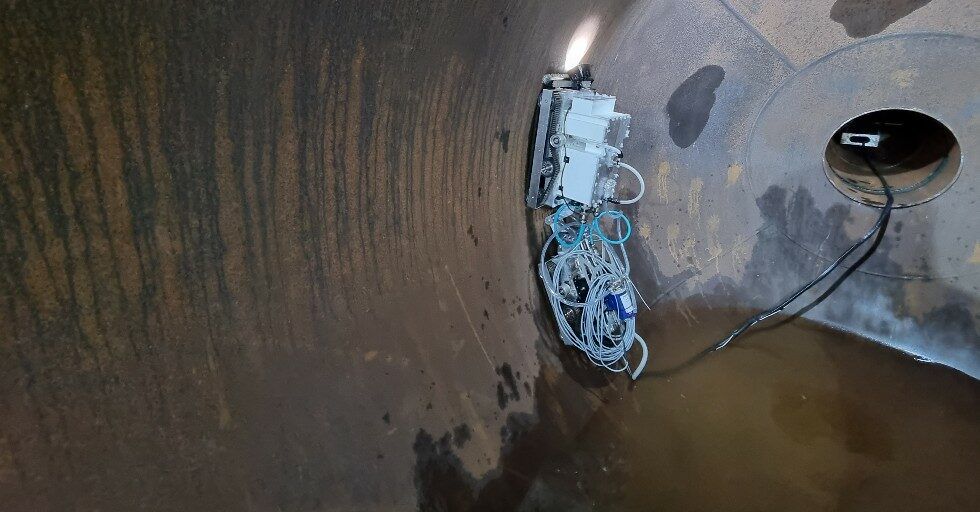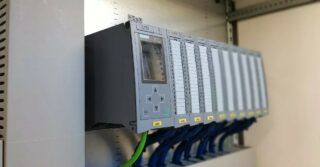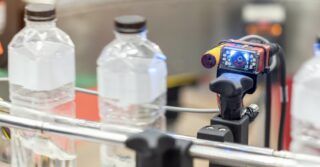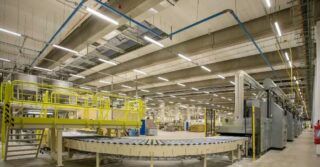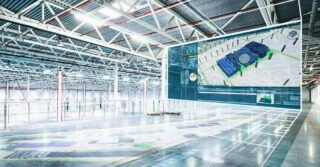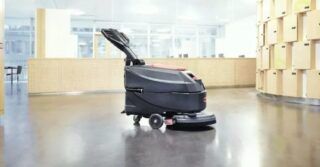A robot currently being manufactured to inspect pressure vessels will remove the risk to humans while also saving industries millions of pounds each year.
As a health and safety requirement, routine internal pressure vessel inspections must be carried out at plants across the world but the process of closing down production, depressurising the vessel and transporting any fluids or liquids is extremely costly.
In addition, these inspections in hazardous environments are currently carried out by humans and there is a high level of risk involved.
To combat these problems, a remotely controlled robot, Chimera, has been developed by a collaboration of companies across the UK for use across all industries, including oil and gas, nuclear and water.
Chimera is a machine which can withstand hazardous environments and is built in two components to allow a great deal of flexibility so it can climb internal vessel walls, and is attached to a tether to enable the machine to be controlled remotely by an operator from a safe distance.
The robot will have a camera attached to relay live images back to the operator and an ultrasonic phased array inspection system and LIDAR scanner will also be included to create a 3D map of the internal structure to paint an accurate picture of the state of the vessel and identify damage.
A slender ‘snake’ arm can also be attached to carry out any minor repairs needed in such a confined space.
The company has developed the robotic platform of the Chimera project and has successfully trialled the machine to prove that the concept model accurately carries out its functions.
Joshua Oakes, a Project Engineer at Forth, said: “Maintenance inspections need to be carried out routinely on pressure vessels the world over and the process of having to stop production and draining or transporting any fluid or gas is a long, and very expensive, one. On average, it can cost £40,000 per day to shut production down, and these inspections can go on for days.
“It also requires people to conduct the inspections and it can be hard getting in and out of the confined spaces, and very dangerous due to the substances which have previously been stored in the vessels. Chimera removes the human element from hazardous environments, and lets the work get carried out from a safe, remote distance. The job can also be completed in hours rather than days, with production not having to be stopped at all.”
The Chimera innovation will come equipped with four heavy duty magnets each with a pull of 116kg worth of weight so it can climb interior walls and ceilings. The machine features a four-track drive and the operator will be able to steer each track individually to ensure it can be easily controlled. The purpose of it being constructed in two separate parts is twofold: to allow for a greater deal of flexibility and to enable the machine to be dragged back should power be lost in the machine’s motors. To reduce the risks of losing power, a water cooling system has been included on the machine to keep the electrics cool during use.
The team at Forth has proven the concept of Chimera with partners, and has successfully trialled a working model. They are now looking to gain financial backers to progress the process of the innovation to the next stage, allowing the machine to be modified and adapted into a commercial piece of equipment.
The Innovate UK-backed programme has also been supported by The Welding Institute, Headlight AI, Sound Mathematics, the University of Nottingham, Rolls Royce, Metallisation and Race.


